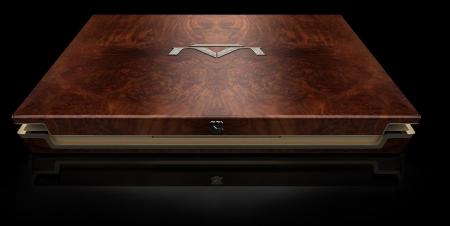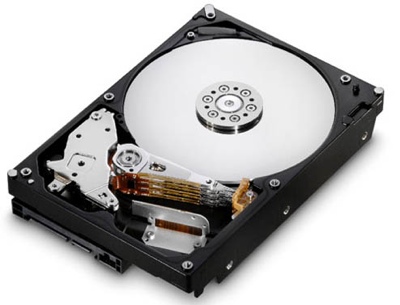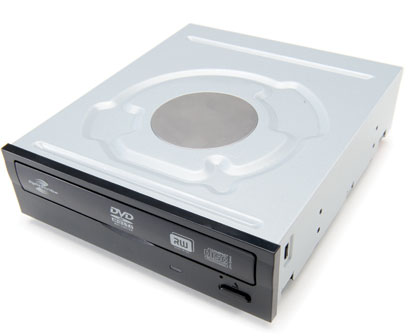Let’s face it, your computer is old. Technology is advancing at such an astounding rate that your PC was obsolete as soon as you took it out of the box. Whether that particular moment was five years or five minutes ago, it’s possible that your inner techie is pulling a Tim Allen and is grunting for more power.
…or it could very well be just gas, you may want to get that checked.
Anyway, if you’re in the market for something new for whatever reason and want to learn a thing or two about buying your very own PC, keep reading.
If you’re like me, and I know I am (ba-dum-ch!), you don’t have a lot of money to throw around. The first thing you should know about buying a PC is that it can be expensive. If you’re a gamer that needs a top of the line system, expect to drop over a grand easy. A PC is one of the most expensive “gaming systems” out there, if that is what you plan to use it for. It’s important to know what your budget is before you start browsing.
No joke, this laptop costs one million dollars. Try explaining that to your wife the next time she takes a look at your credit card bill.
Second, it’s important to know what you’re going to be using it for. If all you’re going to be doing is browsing the internet and playing Farmville on Facebook, then you can get away with a cheaper system. List out the things you plan to use the PC for and use that as a guide when buying your system. If you don’t feel comfortable enough buying online and dealing with online customer service reps when you have questions, go to your local store and ask the PC tech specialists what they have that would suit your needs. Now would also be a good time to decide whether you want a desktop or a laptop.
That fact brings me to my third tip…educate yourself on the product. Yes, you’re going to need to learn a little bit of “geek speak” so that you understand just what it is you’re buying. To get you started, I listed some of the common things you’ll see when browsing PCs below.
Not all motherboards are the same, but they generally have all of these features.
Processor: The CPU, or Central Processing Unit, is one of the more important things to look at when buying a PC. Think of the processor as the brains of the computer. The more advanced your processor is, the more calculations your PC will be able to do within a given amount of time. If you need a computer to be fast, you’ll want a fast processor. Most newer computers come with an Intel Core i7 processor of varying speeds, though please note that this is as of January 2012. There are older processors out there for the cheaper models of PCs, such as the AMD Athlon, which will do in a pinch if you’re not looking to break any speed barriers. If you’re reading this and it’s well past 2012, consider checking to see what new innovations are available. If you’re not sure if the processor you are picking will suit your needs…ask!
Compared to the processors of the 90’s, this is fancy schmancy.
Memory: It’s easy to get this confused with your Disk Space / Hard Drive. Memory comes in many forms, but the one we’re most concerned with is RAM, or Random Access Memory. In a nutshell, the more RAM you have, the more things you can do on your PC at the same time without the system slowing down. RAM is one of the most important things to consider when buying a PC. If you foresee yourself doing a little high-end gaming or photo / video editing, consider upping your RAM. As of January 2012, lower end machines tend to have around 4 GB of Memory / RAM. I’ve seen people cram as much as 32 GB into a desktop, which is probably overkill for the majority of PC users.
RAM can be upgraded by adding boards like the above (called modules) into an empty RAM slot on your motherboard or by replacing an existing RAM module with something of higher capacity. Limits apply based on what your PC can actually handle.
Hard Drive: This is how much you can physically store on your PC. Every program or file you put on your PC takes up space. Unless you’re into some heavy video editing or gaming, you should be fine with the standard space the PC comes with. Higher end machines tend to come with more space and to top that off, you can buy external hard drives that plug in via USB so that you can store more data if you need to or create backups. My laptop runs with 500 GB of hard drive space, though a lot of standard desktops come with 1 TB (1000 GB) or more.
It’s hard to believe that you can fit hundreds of music files, games, and other programs all on this cup holder wannabe.
Video Card: This is another important one…at least if you’re thinking about getting into video editing and gaming. You may have heard in passing names like “Nvidia” and “ATI Radeon”…those are popular brands of video cards. If you’re running a program or trying to play a game and your PC kicks you out of what you were doing, chances are your video card is not up to the task. Faster video cards are also prone to overheating so it’s important to make sure your fans are running and are dust free. Most newer video cards come with an onboard fan strapped right to the card itself to assist with the cooling process. Newer computers (and even some of the older ones), as of January 2012, come with video cards with over 1 GB of video memory. Gamers will want to keep an eye on the progression of PC game requirements and the specs of their own current card and upgrade as necessary.
This little guy was released in 2008. 512 MB…Rock on!
Operating System: This is the software that comes with your machine that enables you to interact with the data stored on the motherboard. As of Jan…you get the idea…Windows 7 is what currently comes with most computers. XP and Vista are still used by some, though like Windows 3.1 and 95, they will eventually become obsolete.
You’re still using DOS huh? LOLz.
Optical Drive: This tells you what kind of media you can run on the PC, whether it be Blu-ray, DVD, or CD. Some optical drives are RW, or Rewritable, meaning that it has the ability to write and rewrite data on an appropriate CD or DVD multiple times. This is a far cry from the CD-ROMs (Read Only Memory) that we used to use years ago. Make sure you pay attention to the optical drives available when browsing PCs.
These devices are often assigned their own letter drive on your PC. Newbies should familiarize themselves with all of the drives available via the “My Computer” icon.
Ports: Ports are, in essence, the holes on the front, back, and sides of your machine that you plug stuff into. Most newer computers come with an array of USB ports that connect your mouse, keyboard, printer, and other devices to your PC, though some towers still have specialized ports for things like your speakers, mouse, and keyboard. If you’re doing any sort of special photo or video editing that uses specialized cards, make sure you have the appropriate port available.
Okay, this is a bit old school, but you get the idea.
That should about do it for the “geek speak.” Just to recap all of the above…
*Know your budget.
*Know what your needs are / what you’ll be using the PC for.
*Have a basic understanding of how the PC and its components work.
Before I go, I’d like to point out that there are a ton of different brands out there. For the casual user (and sometimes advanced user), you can’t go wrong with TigerDirect or Newegg to browse the current deals on various brands. Dell holds some decent deals from time to time and they let you customize your PC to a degree but I’ve found their customer service to be a bit crappy. Some stores like Walmart sell prepackaged PCs…basically what you see is what you get. If you’re going that route, analyze the specs closely to make sure it has everything you need.
My current computer of choice is:
ASUS G73SW-XT1 Laptop Computer – Intel Core i7-2630QM 2.0GHz, 8GB DDR3, 500GB HDD, Blu-ray/DVDRW, 17.3″ Full HD, Windows 7 Home Premium 64-bit, Black, 2-Year Warranty / 1-Year Accidental Damage
This also happens to be the very first laptop I’ve ever owned. Go me.
Geek Speak Translation: Intel i7 Processor (running at 2.0 GHz), 8 GB Memory/Ram, 500 GB Disk Space, Blu-ray/DVD Optical Drive, 17.3″ Size Screen, Windows 7 Operating System.
I’ve owned this laptop for about six months and I am very happy with it. It’s not top of the line but it also doesn’t play around either. I bought it off of TigerDirect’s website while it was on sale, in case you were interested.
Stay tuned for more PC talk on Vince’s PC Corner. In the meantime…happy hunting!











